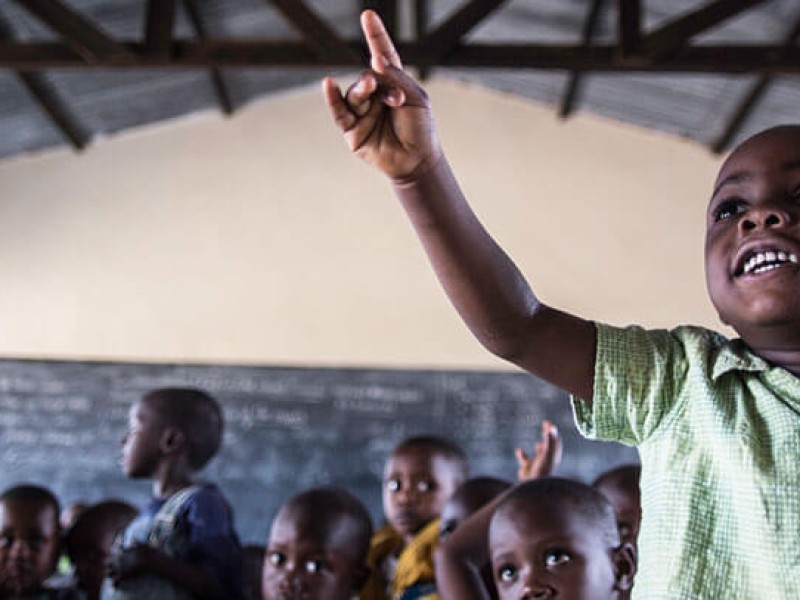Privatisation

Privatisation in Education
In the last decade, policies that involve some level of education privatisation, including public-private partnerships (PPPs), vouchers and “low-fee” private schools, have become increasingly prominent in global education debates and policies. The urgent need to achieve the Education For All goals and the MDGs, as well as the effects of the financial crisis worldwide, has made governments and international organisations more willing to introduce different forms of education privatisation. At the same time, the private sector is increasingly targeting public education systems as profitable markets, seeing business (and profit) opportunities through the sale of textbooks, consultancies, ICT technologies, teacher training, evaluation systems, tests, etc. This new push for private sector engagement in education is arguably shrinking the space for public processes of policy making and debate, sidelining citizens as the key drivers of policy while private corporations and organisations become more dominant.
Many national coalitions within the GCE membership are reporting negative effects of privatisation and public-private partnerships, especially in terms of the impact on equality and the promotion of an education consistent with human rights and the public good. The growth of privatisation is also recognized as a human rights concern internationally.
GCE and Member Materials on Privatisation in Education
Civil society organisations that defend public education and public policy making must act to defend public education.
CLADE website on privatisation of education in Latin America, in Spanish
Workshops on Privatisation in Education
GCE undertook a range of workshops on privatisation in different regions to contribute towards building the movement on the issue.
Manila Workshop on Privatisation in Education: ‘Privatisation, public-private partnerships and the right to education: building critical research skills.’ The workshop was organized in 1-3 August 2013 by GCE, the Autonomous University of Barcelona, ASPBAE and E-NET Philippines in Manila. Pre-Event Materials can be found here (in English)
Workshop on Privatisation in Africa: Education International research affiliates and GCE coalition representatives came together for a three-day Africa and MENA regional conference on “Privatisation and the Right to Education” in Johannesburg, South Africa on 16-18 January 2014.
Resources on Privatisation in Education
The Privatisation in Education Research Initiative (PERI) website has a vast amount of information and resources www.periglobal.org
Materials on the issue from a human rights perspective can be accessed on the privatisation section of the Right to Education Project website
Education International also has some excellent resources on the issue, accessible here
The Global Initiative on Economic and Socio Cultural Rights (GIESCR) also has some good resources. Go here for more on their research.
Tools
New resources for civil society education coalitions: Using human rights tools to tackle the negative effects of privatisation on the right to education – 2015
For the past 18 months, a number of international, national and local organisations have worked together to research and assess the effects of the growth of privatisation in education from a human rights perspective in 8 countries. These include Morocco, Ghana, Uganda, Kenya, Brazil, Chile and Nepal, and in the UK, organisations have examined the impact of development aid to support to private education in developing countries. This work, led by the Global Initiative on Economic Social and Cultural Rights (GI-ESCR) in Partnership with the Privatisation in Education Research Initiative (PERI) and the Right to Education Project (RTE), has led to statements and recommendations from key UN rights bodies, and contributed to reports by the Special Rapporteur on the Right to Education to the UN General Assembly and the Human Rights Council on the impact of private actors on the right to education.
These efforts have fuelled national advocacy and dialogue with governments, private actors and other stakeholders on the issue of privatisation – and created an effective methodology that civil society can use to tackle issues of privatisation in education in their countries. The methodology can easily be replicated by coalitions, including those with no prior experience of using human rights mechanisms. The three short briefs below provide an introduction to this work and explains how to get involved.
UK Parliamentary Debate: the notes of a 2012 debate on low fee private schools and global education for all, held by politicians and experts in the UK parliament.
BBC News article based on the discussion at the above meeting.
Films
A PERI Debate on Privatisation in Education
This video examines the growing trend of privatisation of education globally through the voices of the participants of a summer school on regionalisation, globalisation and privatisation of education.
Education for all: who learns? Who pays? And why?
This lecture by Joel Samoff (Stanford University) was given as part the Privatisation in Education Research Initiative’s summer school on Globalisation, Regionalisation and Privatisation of Education. It explores global targets associated with the education for all from aspects of access, quality and the role of education in society as well as the associated financing of education and how it is structured.
A film exploring the impact of low-fee private schools in Pakistan.
These types of school are an example of education public-private partnerships (ePPPs).
Privatised Education in Chile: Legacy and Protest
Privatisation and its impact in a country with vast economic inequality.
For Profit Schools in South Africa
A film exploring the growth of private schools in South Africa.
A film exploring the impact of private tutoring on pupils and teachers in Cambodia.


